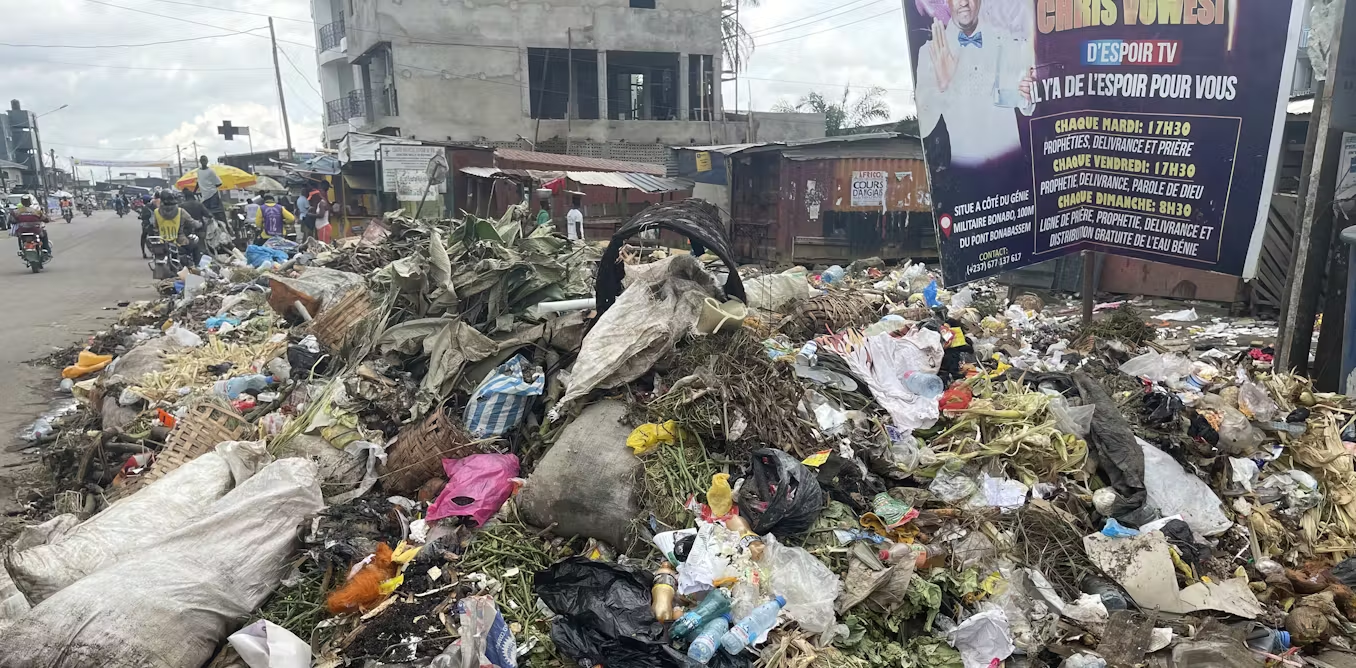
Douala, Cameroon’s largest city, is taking a bold step towards solving two of its most pressing challenges — waste management and energy production — through an ambitious new project aimed at transforming household waste into valuable resources such as electricity, gas, and compost.
The project, spearheaded by the Communes and United Cities of Cameroon (CVUC), is being coordinated by the Mayor of Douala 3rd District, Valentin Epoupa Bossambo, who explained the scope and potential of the initiative during a detailed interview.
“C’est un projet porté par les Communes et villes unies du Cameroun (CVUC), qui ont donné mandat au Maire de la Commune d’Arrondissement de Douala 3è de suivre la maturation de ce projet,” he said.
Italian partners are working alongside local authorities to design and implement a waste recovery and valorisation plant, following earlier feasibility studies with Turkish experts.
“Les déchets ménagers constituent une richesse, l’essentiel étant la maitrise de l’ensemble de la chaine de production, collecte, transport puis traitement dans des décharges modernes,” Mr. Bossambo noted, emphasising the project’s innovative approach and the comprehensive financing model now in place.
The initiative involves site visits, topographical surveys, and land allocation efforts in Nyalla, where authorities are working closely with traditional leaders to resolve property issues surrounding a 12-hectare site.
“Il est difficile d’avoir 12 hectares de terrain libres… nous avons saisi le Ministre en charge des Affaires foncières afin que ces blocages soient levés,” he explained.
Dr. Takoulo Kouoh Fonang Bertin, Head of Hygiene, Environment, and Living Standards at the Douala 3rd Council, highlighted the financial strain caused by current waste practices. “Le contexte de manière générale c’est que nous sommes dans une ville où l’Etat providence dépense près de 8 milliards et demi annuellement pour la gestion des déchets, dans un contexte de tensions de la trésorerie où, les populations ne participent pas véritablement à cette charge,” he said.
With Douala generating approximately 0.46 kg of waste per person daily — 60% of which goes uncollected — authorities see waste valorisation as both an environmental necessity and an economic opportunity.
“35 à 40% de ces déchets se retrouvent dans la nature contribuant ainsi à l’envasement des lits des cours d’eau, encombrant et obstruant les ouvrages, in fine les épisodes d’inondations accentuées,” Dr. Takoulo warned.
The project envisions three main waste transformation streams: composting for urban agriculture, methane recovery, and energy generation. However, legal and regulatory adjustments are necessary for its success.
“Est-ce que notre loi permet qu’une nouvelle société entre dans ce marché alors que jusqu’ici il n’y a que deux ; Enéo et Gaz du Cameroun,” Dr. Takoulo asked, calling for reforms to allow new operators in the energy sector.
If successful, the Douala waste-to-energy plant will become a model for replication across Cameroon, marking a decisive shift from a linear to a circular economy — a goal aligned with the country’s Vision 2030 development strategy.



